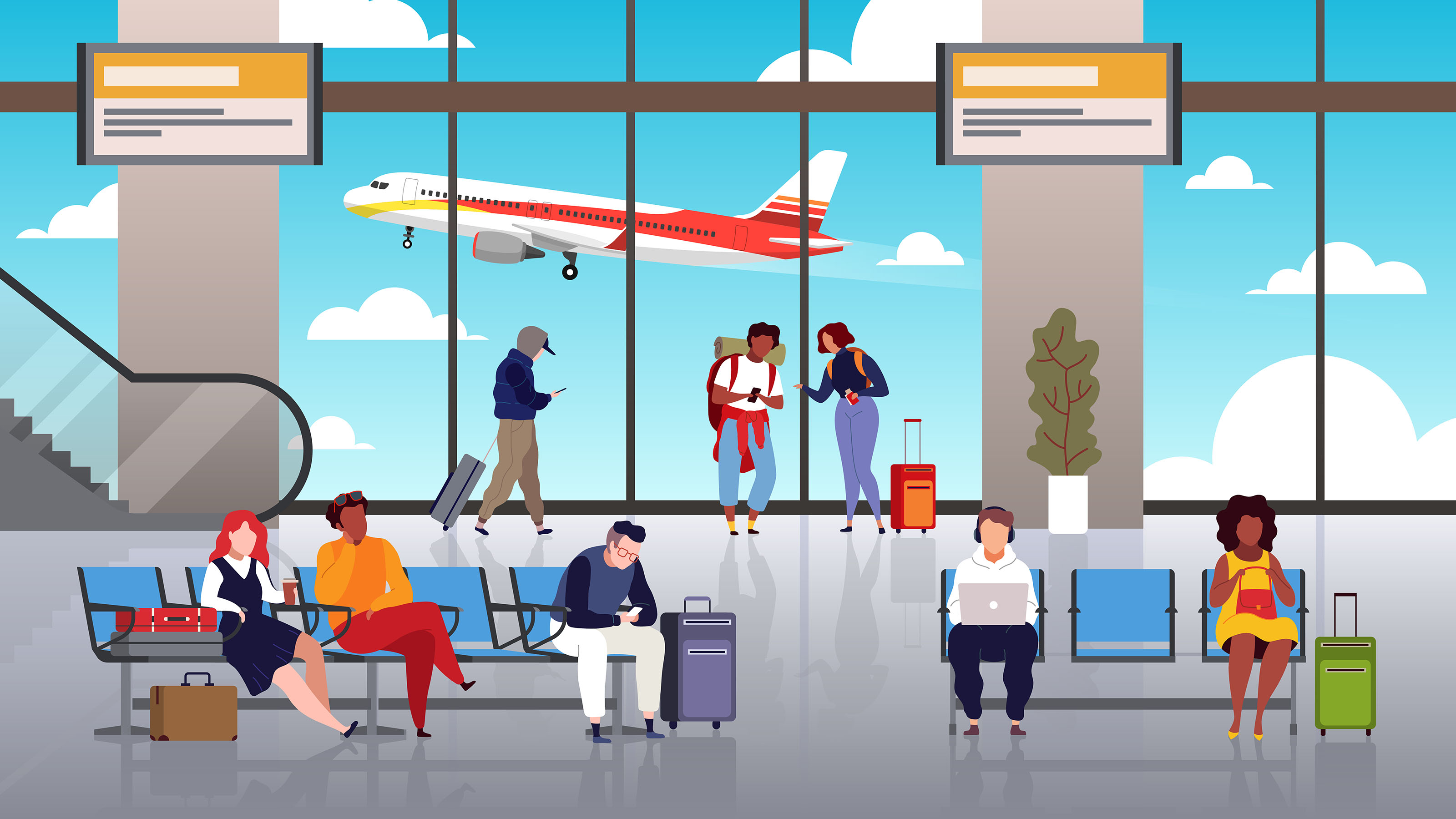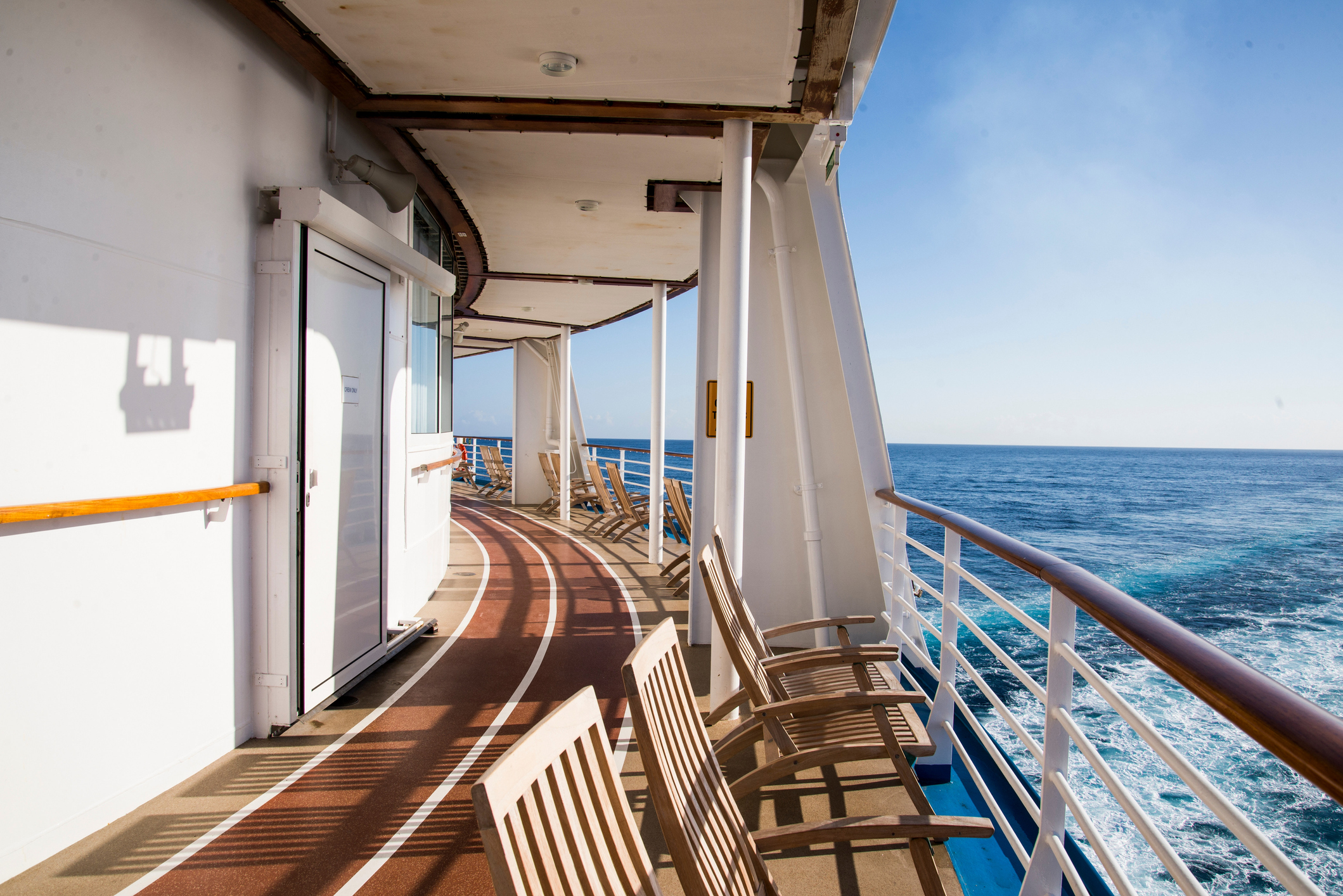Frequent Flyer Tax Could Raise Billions for Climate
Could a mandatory frequent flyer tax help combat global pollution? Some climate scientists and researchers say yes.


Profit and prosper with the best of Kiplinger's advice on investing, taxes, retirement, personal finance and much more. Delivered daily. Enter your email in the box and click Sign Me Up.
You are now subscribed
Your newsletter sign-up was successful
Want to add more newsletters?

Delivered daily
Kiplinger Today
Profit and prosper with the best of Kiplinger's advice on investing, taxes, retirement, personal finance and much more delivered daily. Smart money moves start here.

Sent five days a week
Kiplinger A Step Ahead
Get practical help to make better financial decisions in your everyday life, from spending to savings on top deals.

Delivered daily
Kiplinger Closing Bell
Get today's biggest financial and investing headlines delivered to your inbox every day the U.S. stock market is open.

Sent twice a week
Kiplinger Adviser Intel
Financial pros across the country share best practices and fresh tactics to preserve and grow your wealth.

Delivered weekly
Kiplinger Tax Tips
Trim your federal and state tax bills with practical tax-planning and tax-cutting strategies.

Sent twice a week
Kiplinger Retirement Tips
Your twice-a-week guide to planning and enjoying a financially secure and richly rewarding retirement

Sent bimonthly.
Kiplinger Adviser Angle
Insights for advisers, wealth managers and other financial professionals.

Sent twice a week
Kiplinger Investing Weekly
Your twice-a-week roundup of promising stocks, funds, companies and industries you should consider, ones you should avoid, and why.

Sent weekly for six weeks
Kiplinger Invest for Retirement
Your step-by-step six-part series on how to invest for retirement, from devising a successful strategy to exactly which investments to choose.
Frequent flyers contribute more carbon pollution than other people on the planet. That’s a takeaway from researcher Sola Zheng, who focuses on the environmental impacts of commercial aviation. In a piece written for TIME magazine, Zheng points out that frequent flyers (i.e., people who took more than six flights in 2019) “flew more than 98% of the world population.”
That air travel — Zheng and some climate scientists argue — presents an opportunity for people who log many more air miles than others to help lower carbon emissions by paying a mandatory tax.
Taxing frequent flyers to combat climate change isn’t a new idea. For years, data have shown that a small percentage of travelers take a large proportion of flights. For example, a 2021 UK climate action report found that:
From just $107.88 $24.99 for Kiplinger Personal Finance
Become a smarter, better informed investor. Subscribe from just $107.88 $24.99, plus get up to 4 Special Issues

Sign up for Kiplinger’s Free Newsletters
Profit and prosper with the best of expert advice on investing, taxes, retirement, personal finance and more - straight to your e-mail.
Profit and prosper with the best of expert advice - straight to your e-mail.
- In the U.S., 12% of people took 66% of the flights, while in France, just 2% of the population took 50% of the flights.
- Similar data applied to travelers in other countries including Canada, China, the Netherlands, the UK, and India, according to the study.
Since frequent flyers take most of the flights, the logic is that they are partly responsible for increasing CO2 aviation emissions that contribute to global warming. And, because data show that frequent flyers tend to have higher incomes, the argument from some is that those travelers should (and can afford to) pay a mandatory “frequent flyer tax.” Revenues from that tax would be used to help combat aviation-related global pollution.
Frequent Flyers: Should They Pay a Climate Tax?
Some aviation technologies on the horizon could potentially help reduce global carbon emissions. However, as Zheng notes, the adoption of needed greener technologies will be expensive ($4 trillion) and likely slow. Meanwhile, the International Civil Aviation Organization (ICAO) advocates net-zero carbon emissions by 2050.
Additionally, since already high emissions from air travel are expected to increase, some climate change groups say that consumers may need to help bear costs. Enter a mandatory climate tax for frequent flyers that could generate more than $120 billion in tax revenue. (That’s according to 2019 data from an International Council on Clean Transportation study).
The idea behind the frequent flyer tax proposal is that flat, across-the-board, carbon taxes could adversely impact airline passengers who rarely fly or who have lower incomes. On the other hand, frequent flyers are reportedly more likely to be wealthier (i.e., have higher incomes). Some proponents of frequent flyer taxes have also suggested that the additional levy wouldn't deter wealthier travelers from flying.
- A modeled frequent flyer climate tax would include one tax-free flight each year, with climate taxes increasing for each subsequent flight.
- So, for example, according to Zheng, a climate tax on a flyer’s second flight could be as little as $9, while the climate tax on that person’s 20th flight could be as high as $177.
Is a Frequent Flyer Tax Fair?
If an escalating per-flight climate tax weren’t feasible or desirable, Zheng suggests that a tax tied to air miles might be worth considering. Although in any case, many climate advocates acknowledge that implementing a climate tax based on air travel frequency could be challenging for consumers and the aviation industry.
That’s partially because of concerns about the fairness of a frequent flyer tax. Should frequent flyers pay more just because they choose to fly more and can likely afford the tax because they tend to have higher incomes? Also, since airplanes reportedly account for only about 2.5% of global CO2 emissions, some wonder whether a frequent flyer levy would be effective for combating global pollution.
There are also practical challenges associated with a frequent flyer tax. How would airlines implement the tax, and how would governments ensure the tax revenue was used to fund aviation-related climate change initiatives?
Other Climate Taxes and Tax Credits
The push for mandatory climate taxes for frequent flyers comes alongside other efforts worldwide to raise revenue to combat climate change.
- A United Nations-backed climate change report says the world could reach a critical warming threshold by the early 2030s.
- A key point from the report is that, without urgent action, the world is running out of time to mitigate the effects of global warming.
With those impacts in mind, some states and countries are considering taxes to fund climate change. Those initiatives, proposed in Washington state and Canada, focus on increasing property taxes to help meet emissions goals in addition to existing carbon taxes. (Carbon taxes are taxes on fossil fuels designed to discourage harmful CO2 emissions.)
Meanwhile, survey data show that Americans are expected to travel more in 2023 and that wealthy Americans will take about a million more international trips than in 2019 — before the COVID-19 pandemic. (Increased travel won’t likely bode well for decreasing aviation emissions.)
It should also be noted that the federal government is offering billions in tax incentives designed to help combat climate change. Some of those credits in the Inflation Reduction Act include tax incentives for energy-efficient home improvements (with a tax credit for home solar panel installation), and a new EV tax credit for 2023.
Profit and prosper with the best of Kiplinger's advice on investing, taxes, retirement, personal finance and much more. Delivered daily. Enter your email in the box and click Sign Me Up.

Kelley R. Taylor is the senior tax editor at Kiplinger.com, where she breaks down federal and state tax rules and news to help readers navigate their finances with confidence. A corporate attorney and business journalist with more than 20 years of experience, Kelley has helped taxpayers make sense of shifting U.S. tax law and policy from the Affordable Care Act (ACA) and the Tax Cuts and Jobs Act (TCJA), to SECURE 2.0, the Inflation Reduction Act, and most recently, the 2025 “Big, Beautiful Bill.” She has covered issues ranging from partnerships, carried interest, compensation and benefits, and tax‑exempt organizations to RMDs, capital gains taxes, and energy tax credits. Her award‑winning work has been featured in numerous national and specialty publications.
-
 Nasdaq Leads a Rocky Risk-On Rally: Stock Market Today
Nasdaq Leads a Rocky Risk-On Rally: Stock Market TodayAnother worrying bout of late-session weakness couldn't take down the main equity indexes on Wednesday.
-
 Quiz: Do You Know How to Avoid the "Medigap Trap?"
Quiz: Do You Know How to Avoid the "Medigap Trap?"Quiz Test your basic knowledge of the "Medigap Trap" in our quick quiz.
-
 5 Top Tax-Efficient Mutual Funds for Smarter Investing
5 Top Tax-Efficient Mutual Funds for Smarter InvestingMutual funds are many things, but "tax-friendly" usually isn't one of them. These are the exceptions.
-
 Why It's Worth Booking a Winter Vacation
Why It's Worth Booking a Winter VacationTravel Smart In the early months of the year, travel demand dips — and so do prices.
-
 5 Ways to Save on a Trip to the 2026 Olympics in Italy
5 Ways to Save on a Trip to the 2026 Olympics in ItalyA guide to going to the Milan-Cortina 2026 Winter Olympics without breaking the bank.
-
 The Best (and Worst) Airlines for Flight Delays and Cancellations
The Best (and Worst) Airlines for Flight Delays and CancellationsWhich airlines should you book and which should you avoid if you want to make it to your destination on time?
-
 Four Luxury Spa Resorts for Well-Heeled Travelers
Four Luxury Spa Resorts for Well-Heeled TravelersWe hand-picked these U.S. luxury spa resorts for their serenity, amenities and dedication to the comfort of older travelers.
-
 Child-Free Cruises Perfect For Your Retirement Celebration
Child-Free Cruises Perfect For Your Retirement CelebrationHow to find a bespoke ocean or river vacation for adults. Many of these options are smaller, charming river cruises, expeditions, or niche experiences.
-
 Noctourism: The New Travel Trend For Your Next Trip
Noctourism: The New Travel Trend For Your Next Trip"Noctourism" is a new trend of building travel and vacations around events and plans that take place at night. Take a look at some inspiring noctourism ideas.
-
 My Husband and I Retired at 67 With $3.2 Million, But He's Frugal About Travel. How Can I Convince Him to Loosen Up?
My Husband and I Retired at 67 With $3.2 Million, But He's Frugal About Travel. How Can I Convince Him to Loosen Up?We asked financial planning experts for advice.
-
 Cruise Lines Sue to Block Hawaii’s New Climate Tourism Tax
Cruise Lines Sue to Block Hawaii’s New Climate Tourism TaxState Tax Your vacation to the Aloha State could come at a higher price tag next year. Here’s why.